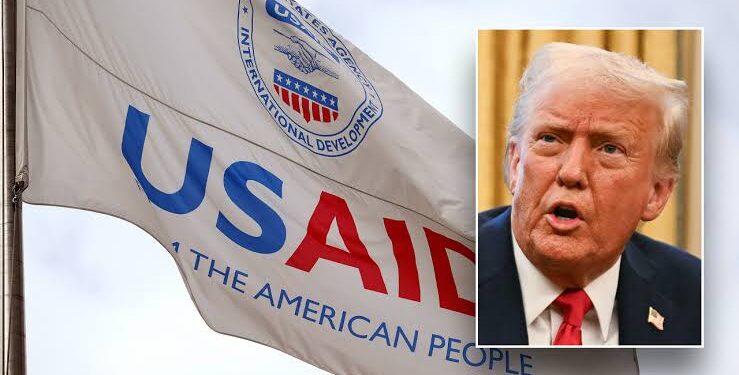A vital water project in Jacobabad, Pakistan, is on the brink of collapse due to U.S. President Donald Trump’s foreign aid freeze. The city, one of the hottest in the world, relies on this USAID-funded initiative to provide clean drinking water to 350,000 people.
Heatwaves and Water Scarcity
Jacobabad frequently experiences extreme temperatures exceeding 50°C (122°F). Without access to clean water, residents face life-threatening risks such as heatstroke and dehydration. The crisis is worsening due to climate change, with the Pakistan Meteorological Department warning of below-average rainfall and potential droughts in the coming months.
USAID’s Role in Water Supply
The project began in 2012 with a $66 million USAID grant. It renovated a water facility that pumps and purifies water from a canal 22 kilometers away. The plant supplies 1.5 million gallons (5.7 million liters) of water daily, ensuring the survival of thousands. However, the Trump administration’s 90-day freeze on foreign aid has blocked $1.5 million in essential funding, threatening the project’s future.
Funding Cuts Leave Residents in Crisis
Pakistan-based NGO HANDS warns that without urgent financial support, the project may shut down within months. CEO Shaikh Tanveer Ahmed stressed that Jacobabad’s poor residents cannot afford expensive private water tankers, which often carry contaminated water. Local authorities lack the expertise and financial mechanisms to maintain the system independently.
Job Losses and Service Disruptions
The funding freeze has already resulted in the layoffs of 47 workers, including skilled water purification experts. Service disruptions are now imminent. Residents fear the return of dangerous water shortages, recalling past hardships when women had to walk for hours to collect water.
Trump’s Attack on Foreign Aid
The freeze is part of Trump’s broader push to cut U.S. foreign aid, particularly targeting USAID, which distributes 42% of global humanitarian assistance. Despite having a $42.8 billion budget, USAID accounts for less than 1.4% of total U.S. government spending. Trump has criticized the agency, calling it “run by radical lunatics.” Billionaire Elon Musk has also labeled it a “criminal organization” in need of dismantling.
Pakistan’s Climate Struggles
Pakistan contributes less than 1% of global greenhouse gas emissions but remains one of the most affected countries by climate change. The nation has faced multiple environmental disasters, including the 2022 monsoon floods that submerged one-third of the country, killed 1,700 people, and caused $14.9 billion in damages. Jacobabad also suffered from the 2010 floods, which killed nearly 1,800 people and displaced millions.
A City on the BrinkFor Jacobabad’s residents, losing this water project would be devastating. Social activist Abdul Ghani emphasized that the poorest citizens would suffer the most. Eighteen-year-old Noor Ahmed recalled how women previously had to walk miles to find water. Others, like 55-year-old Sadruddin Lashari, stressed that private water sources often led to severe health problems and increased medical costs.
With funding uncertain and temperatures rising, Jacobabad’s future hangs in the balance. Residents now face the grim reality of surviving without a reliable source of clean water.
Related Stories:
Trump’s USAID Cuts Threaten Southeast Asia’s Human Rights Defenders
What Is USAID? Trump Puts Its Staff on Leave, Freezing Global Aid
Elon Musk Labels USAID a ‘Criminal Organization’ Amid Agency Turmoil
















